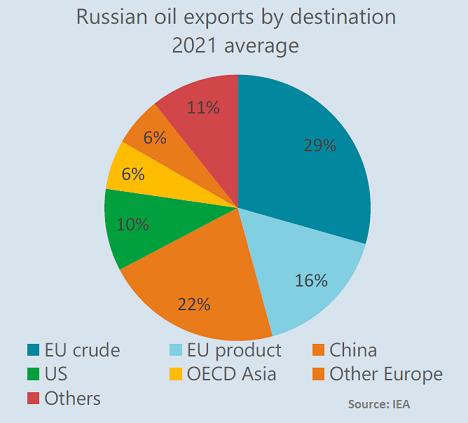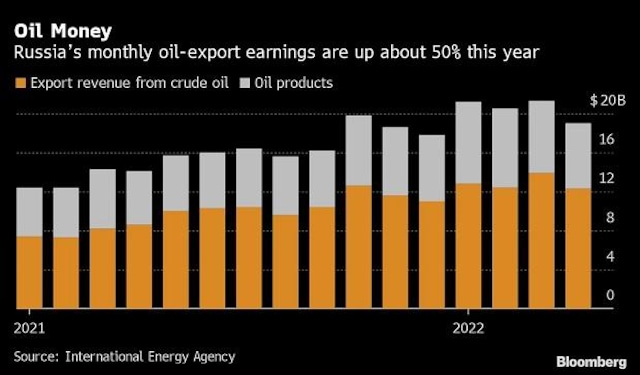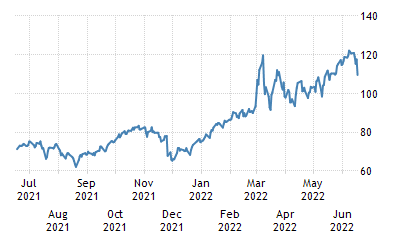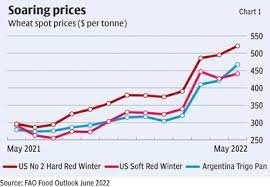When Russia invaded Ukraine in February 2022 no one could have known how long the ensuing conflict would last, or how deep the shockwaves sent through Europe or the rest of the world would be. As the war approaches its fifth month, however, the economic fallout from the conflict has become clearer and the outlook is not positive.
Against an already turbulent backdrop of rising food and energy prices and disrupted supply chains following the coronavirus pandemic, the war between Russia and Ukraine has further exacerbated supply and demand tensions, damaging consumer sentiment and global economic growth. Severe economic sanctions on Russia have been imposed by NATO (North Atlantic Treaty Organisation) which is a post World War II alliance of 30 European and North American countries (US and its Allies) who agree to defend each other against attacks by third parties. This has severely impacted the supply of several commodities and energy.
In the paragraphs that follow we have tried to highlight the main areas of economic impact of this conflict on the world economy and India.
Energy Trade
Europe (primarily Germany, Poland and Netherlands) is mainly dependent on Russia for its energy requirement both natural gas (around 40%) and oil (around 30%) although efforts are being made to reduce this since the start of economic sanctions.

Reluctance to buy Russian oil has caused it to trade at a discount to the global oil prices leading to oil import dependent countries like China, India, Turkey and others to place bulk orders from Russia resulting in a 50% spike in its energy Sales to $ 100 bn within the first 100 days of the war.

International Oil prices which had started increasing since February 2022 soon crossed the price $100 per barrel before dropping in March after the US announced plans to release from its reserves about 1 million barrels of oil per day over a period of six months.
However since April prices have once again been on an upswing breaching the $ 120 mark in the first week of June, and is currently trading in the $ 115 to 120 range. Countries that are reliant on oil imports are seeing pressure on widening fiscal and trade deficits along with continuously increasing domestic inflation.

Commodity Trade
In addition to rising fuel prices, the wider supply chain disruptions have also been witnessed in raw materials and semi-finished goods as well as food grains and food products.
Physical disruptions on account of the war on the ground as well as the sanctions and higher commodity prices has also exacerbated the strains on transport logistics adding to prolonged delivery times and high production costs for manufacturers as well as higher shipping costs because of higher fuel prices and insurance premiums.
Both Russia and Ukraine are major commodity producers account for up to 30% of the global exports for wheat and 65% for Sunflower. The conflict disrupted Ukraine’s planting and harvest season, destroyed critical fields, infrastructure and production.
Moreover, the conflict has resulted in export shipping being halted from the Black Sea, from where about 90% of Ukraine’s grains are exported. All these has resulted in the global prices of wheat rising by 165% since May 2021 with the bulk of the increase taking place after February 2022.

Supply chains for high-value goods and critical components, including those of automotive and electronics, particularly bore the brunt of interruptions in the trade corridor between Europe and Asia. The war has cut off European carmakers from supplying key parts such as wiring systems manufactured in Ukraine. Bottlenecks have also affected industries including food, construction, petrochemical and transport industries.
Global Impact
As a result of the conflict, the World Bank has lowered its global growth forecast for 2022 by nearly a full percentage point, from 4.1% to around 3% as well as projects increase in unemployment, inflation, interest rates and poverty.
Poverty in Ukraine is projected to increase from 1.8% in 2021 to 19.8% in 2022. A more severe and protracted war could lead to poverty affecting nearly 30% of its population. Russia’s growth too is expected to contract by nearly 8% in 2022 with unemployment close to 9-10%.
Steeper price increases for food and fuel may spur a greater risk of unrest especially in some poorer regions from Sub-Saharan Africa, Latin America to Central Asia, while food insecurity is likely to further increase in parts of Africa, Asia and the Middle East.
The entire global economy has started feeling the effects of slower growth and higher inflation. There is also a clear risk of Recession (falling growth) in many countries on account of high inflation (among the highest levels in many decades) leading to hike in interest rates (to slow down demand) which will impact fresh investments and in turn growth negatively.
Impact on India
India has no energy insecurity as it has stepped up its oil purchase from Russia, although the diplomatic fallout may be felt in the future. India is major wheat producer and may have gained by its export but the government has banned the export of wheat so that our internal food needs is a top priority.
India is the worlds largest net importer of fertilisers whose cost has gone up dramatically in India as Russia, Ukraine & Belarus were the major exporters.
Just as the world , India also is experiencing high inflation and our Central Bank has started to raise interest rates to address and control it. We are a developing economy , the inevitable slowdown because of higher rates will set us back much further as we were just getting over the after effects of the shutdowns due to the pandemic.
The western allies have not imposed any economic sanctions for not banning Russian oil, but if they do, it will spell disaster for India.


Vishal Waghate
India much insulated from energy and food crises.. But any future impact in sectors like software and tech.. And the we are exporters to the pro nato countries..
admin
Thankyou Vishal Waghate for your comment. The impact on specific sectors are automobiles, 1fertilisers, consummables where- edible oil is evident. The long term effects will be known only after sometime as global businesses are too interlinked.